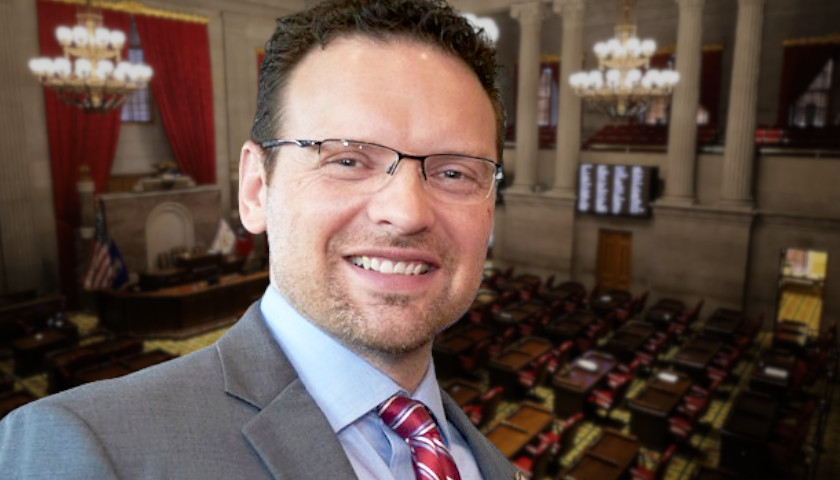Legislation to tackle drug overdoses, sex offenses, and victims rights have already been put forth for the 2024 session of the Tennessee General Assembly.
State Representative Jason Zachary (R-Knoxville) wants to update an old statute that he said he thinks does not do enough to protect victims of potential violent crimes.
For that purpose, he introduced HB 1625, which would require mental health professionals to report threats of harm directed at people or groups.
“The current statute, which has been in code for 40 years, requires mental health practitioners to only report a threat if it is against a clearly identified victim,” Zachary told The Tennessee Star Friday afternoon. “The statute as written does not specify where to report a threat nor does it provide the mental health practitioner civil immunity for reporting. According to an informal survey from the Sheriff’s Association, no mental health practitioner has ever reported a threat because in most cases they do not want to call law enforcement and the statute says the threat has to be clearly identified.”
“The legislation we are proposing, which passed the House during Special Session with bi-partisan support, requires a mental health practitioner to report a threat that they feel is imminent to general groups, using their reasonable medical judgment,” he said. “The bill also specifies who they are to contact, which include law enforcement, 988 or their local crisis response service. We then provide the mental health practitioners immunity from adverse action from the regulatory board for their courage to report a threat.”
Zachary (pictured above) noted that the legislation was first brought to him in a meeting with parents of victims of The Covenant School shooting and that the parents who initially drafted it are attorneys. He said the legislation will save lives in the event that a mentally disturbed person threatens violence during a mental health session.
Lawmakers are also looking for ways to creatively address the drug overdose epidemic.
HB 1624, introduced by State Representative Scott Cepicky (R-Culleoka), would do just that.
The bill would create a Class B misdemeanor for “knowingly failing to seek medical assistance for an individual who the person knows or reasonably should know is experiencing a drug-related overdose,” and would allow a sentencing court to “order the defendant to complete a clinical substance abuse assessment and participate in any available substance abuse treatment program.”
As of October, 6,257 non-fatal opioid overdoses had been reported to the Tennessee Department of Health (TDOH) in 2023, putting the state well on its way to surpassing the 2022 total of 7,127.
Another bill, this one introduced in the State Senate, would create a new category of sex offender reserved for parents who leave a child with a sexual predator.
SB 1587, introduced by State Senator Ferrell Haile (R-Gallatin), “specifies that a parent or guardian who knowingly leaves their child under the care or supervision of a person who is required to register as a sexual offender commits a Class A misdemeanor.”
Sex offenses, particularly human trafficking, were a focus of the General Assembly in 2023.
During the August special session, the Tennessee Faith & Freedom Coalition worked with the legislature to pass an anti-human trafficking bill that will require the Tennessee Bureau of Investigation (TBI) to “submit a report on child and human trafficking crimes and trends in this state, based upon data available to the bureau, as well as current programs and activities of the bureau’s human trafficking unit, to the governor, the speaker of the house of representatives, and the speaker of the senate by December 1, 2023, and by each December 1 thereafter.”
– – –
Pete D’Abrosca is a reporter at The Tennessee Star and The Star News Network. Follow Pete on Twitter/X.
Photo “Jason Zachary” by Farragut West Knox Chamber of Commerce. Background Photo “Tennessee State House of Representatives Chamber” by Antony-22. CC BY-SA 4.0.








